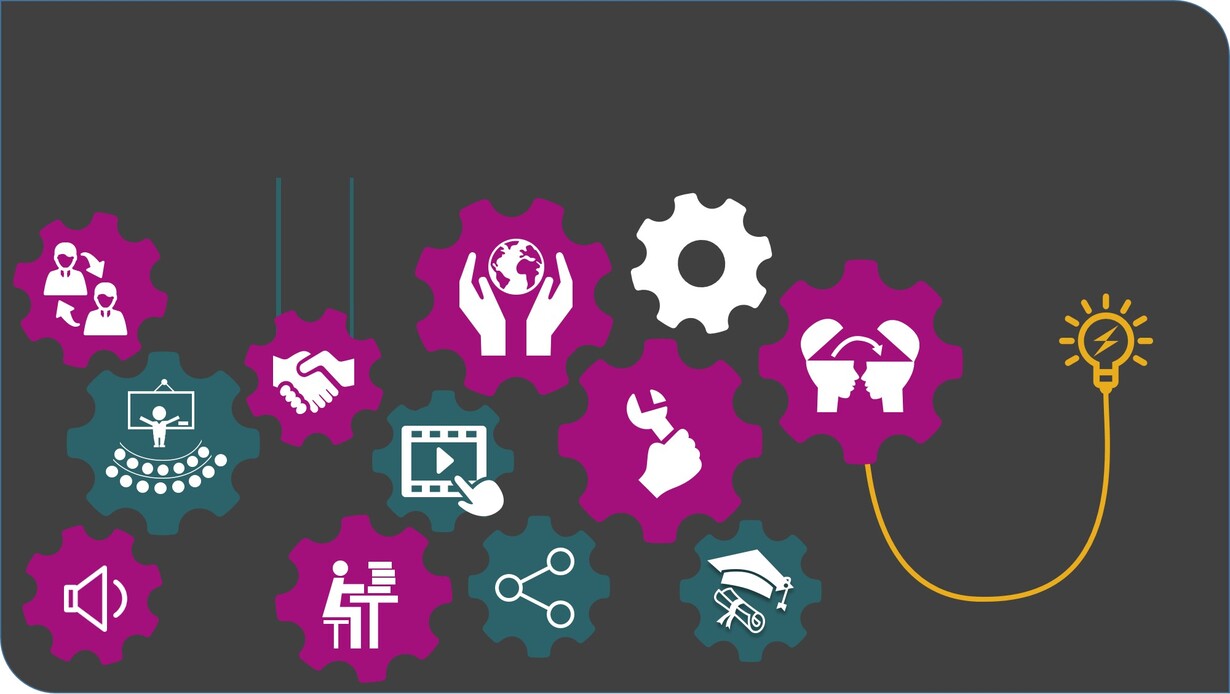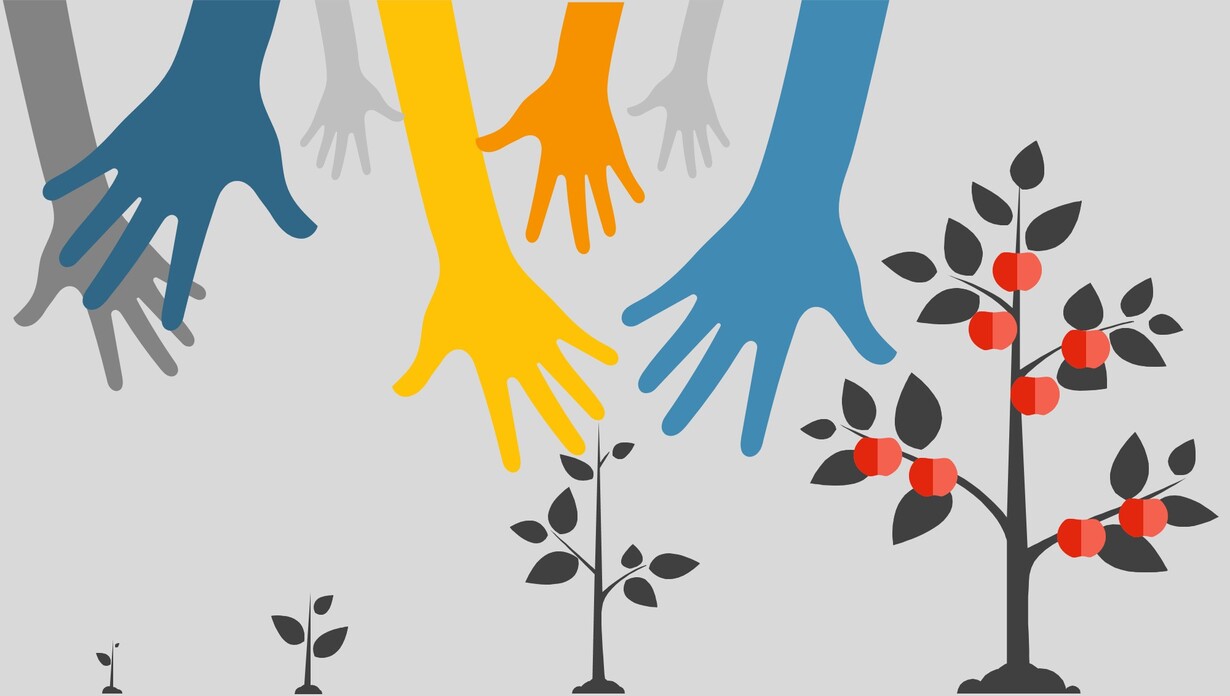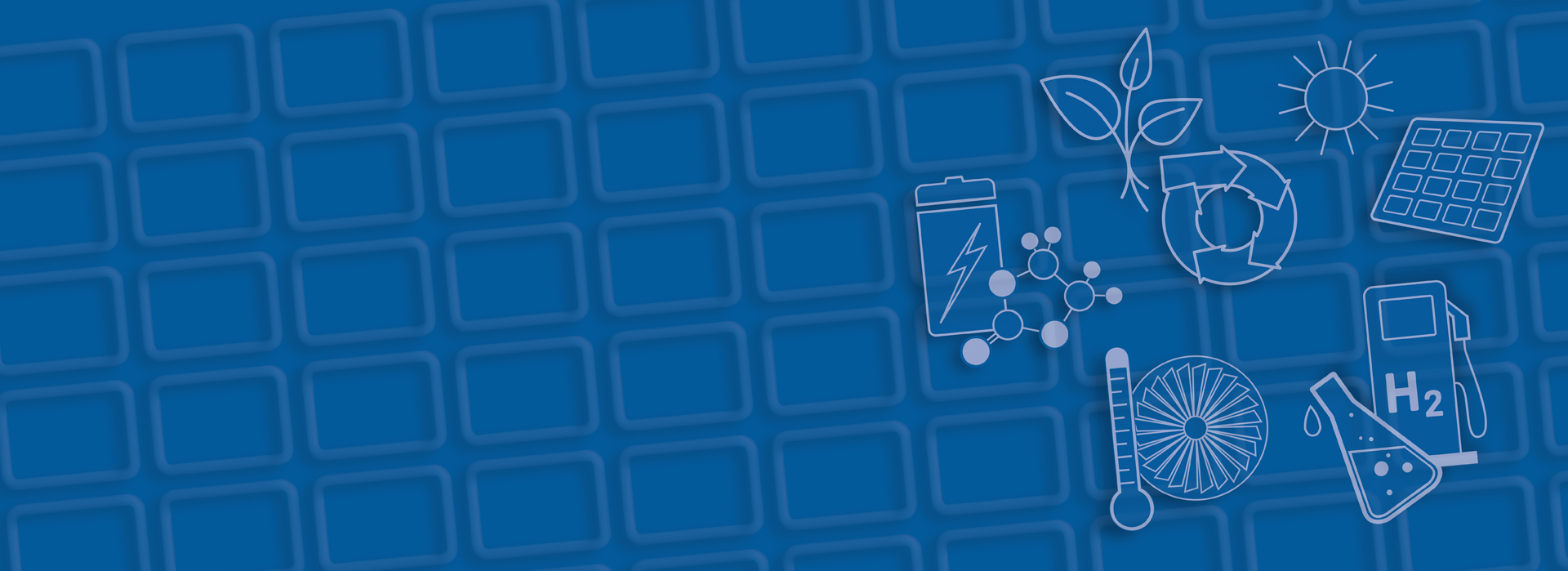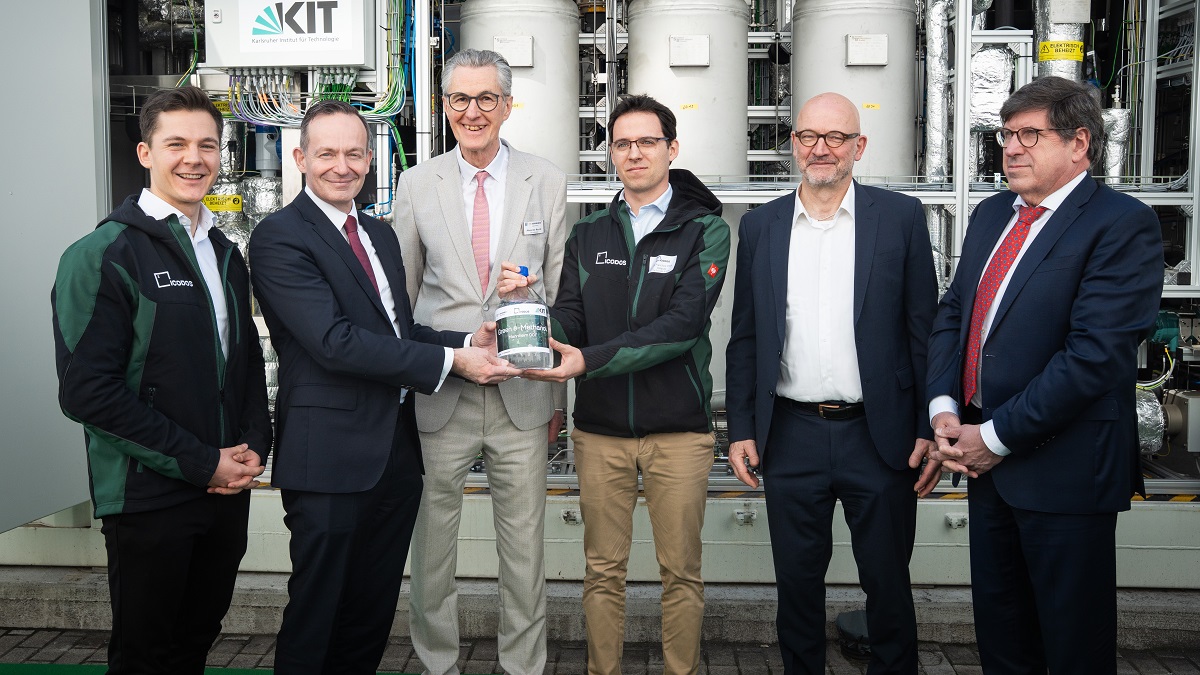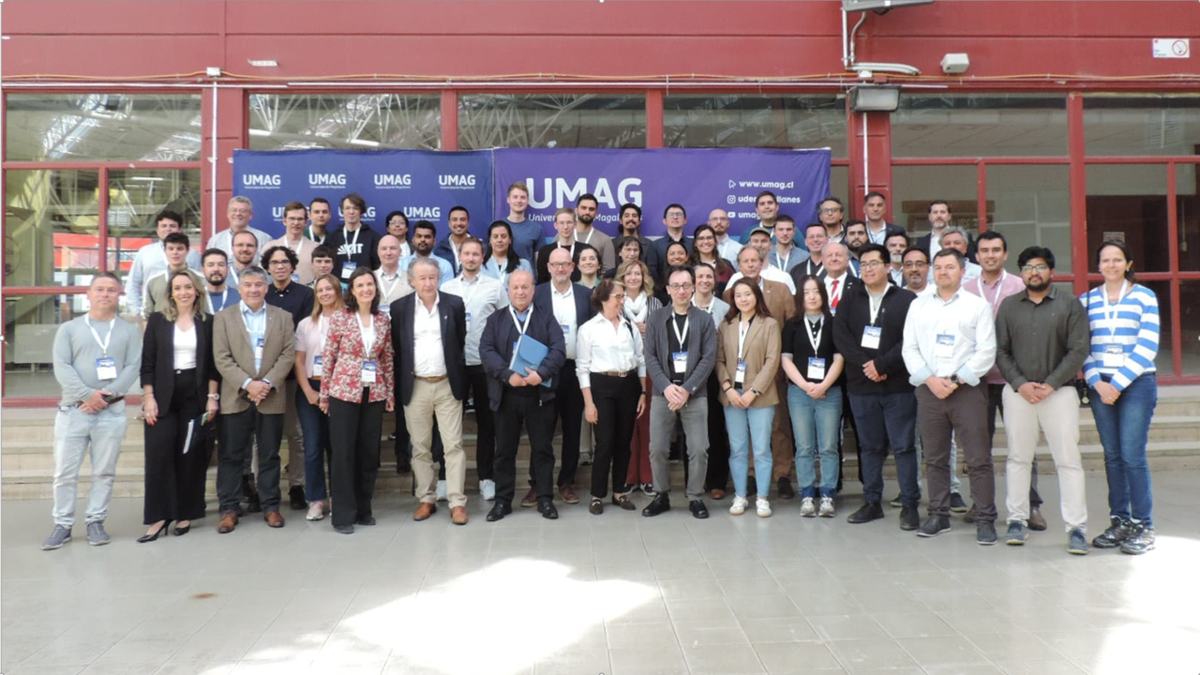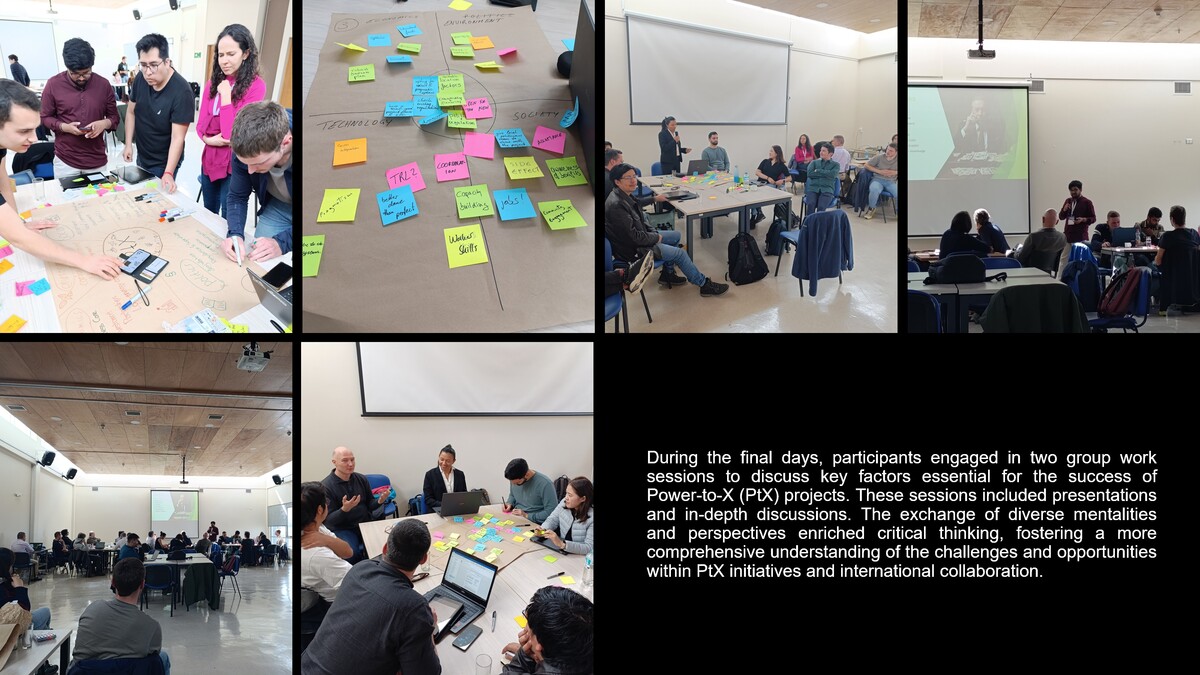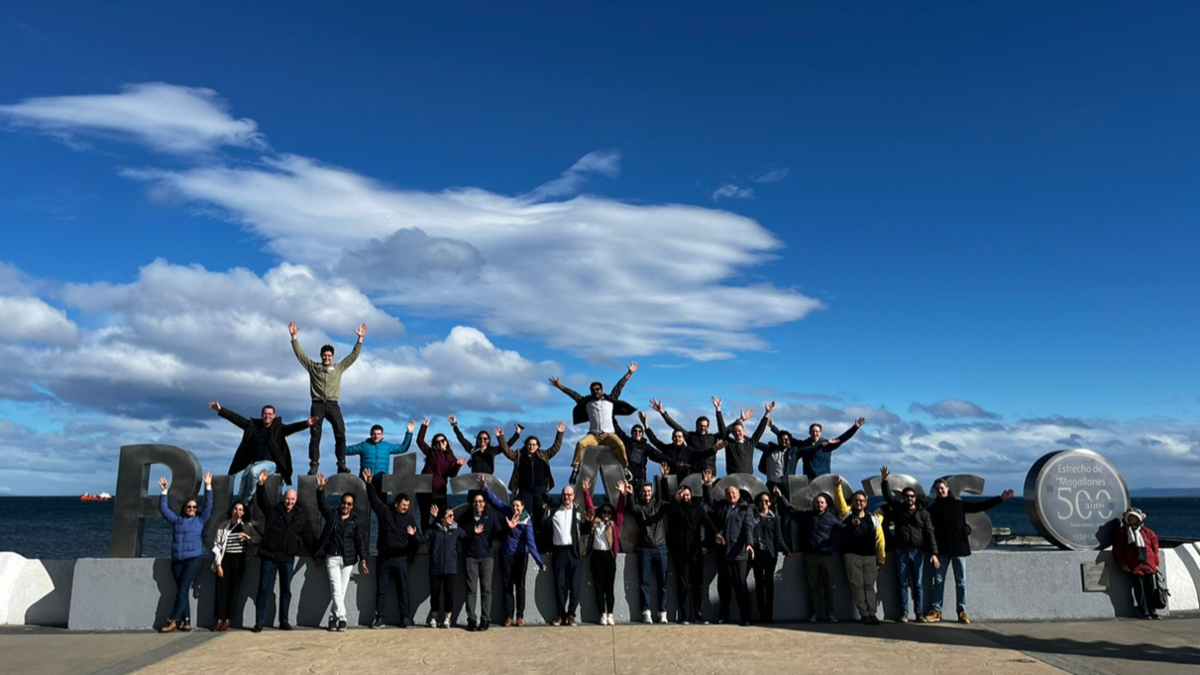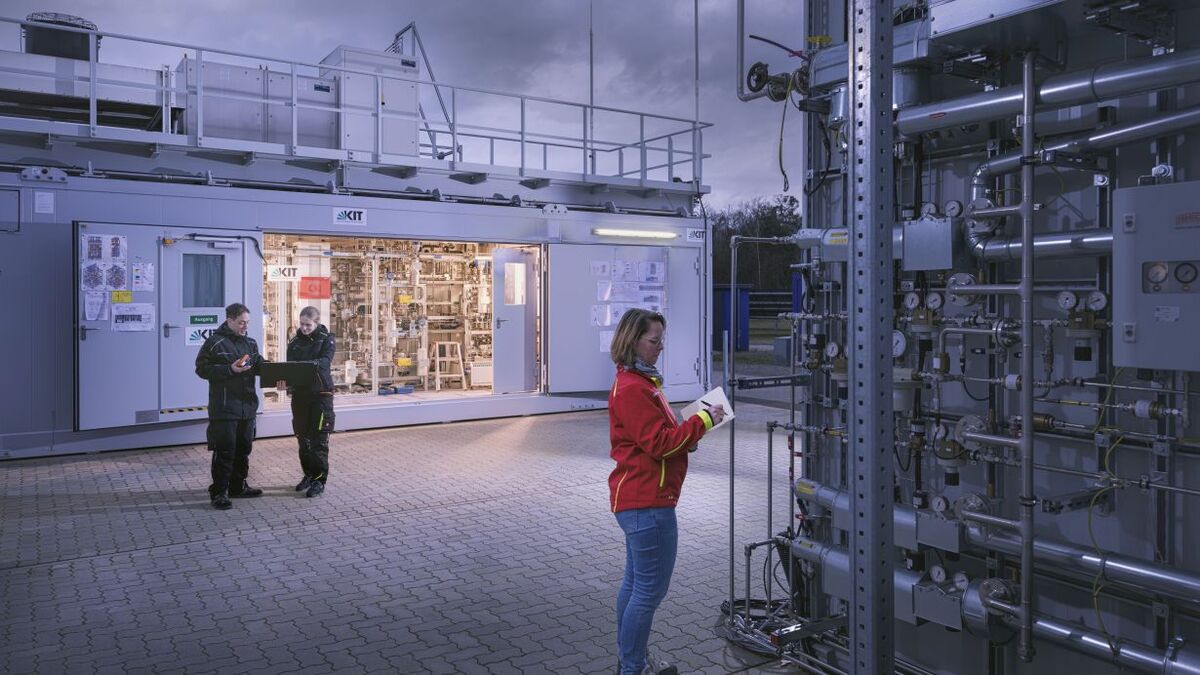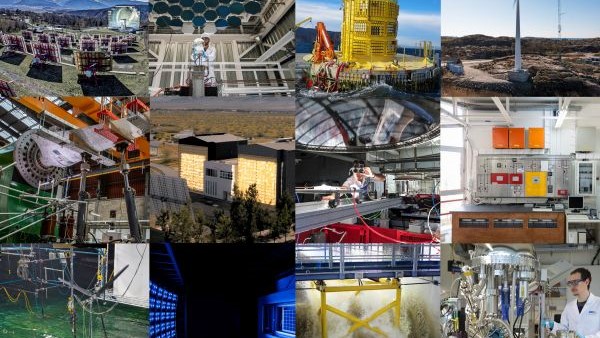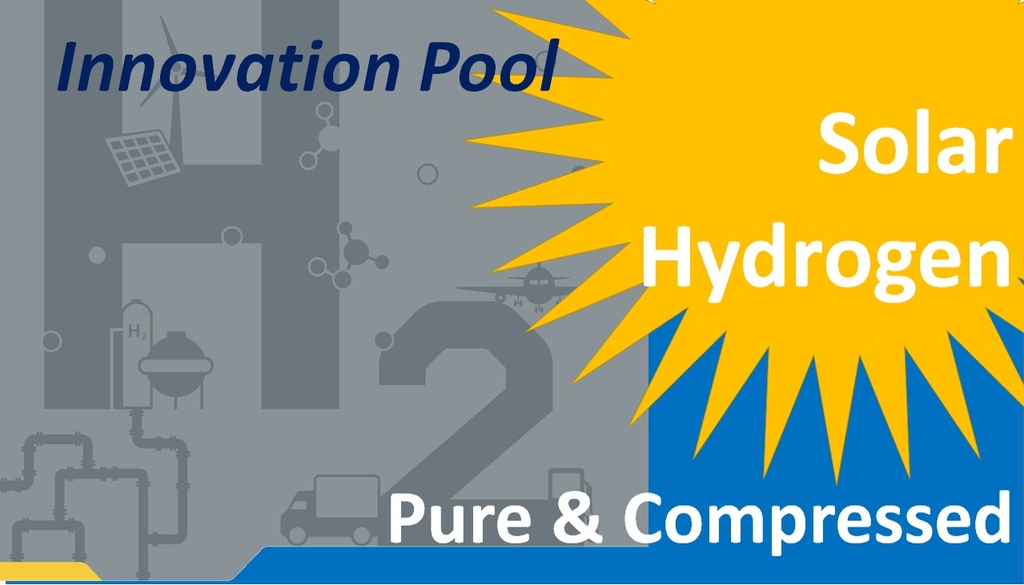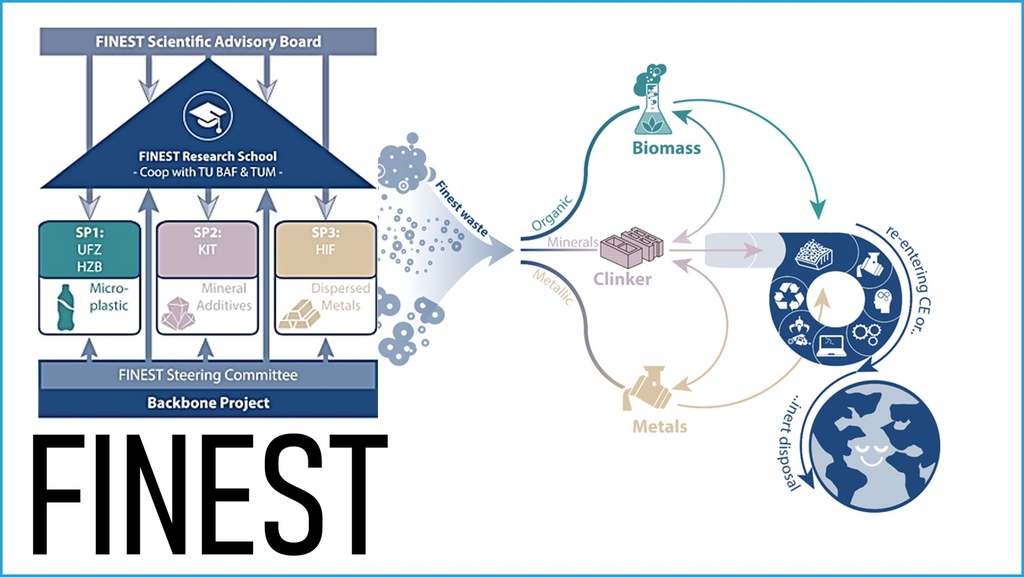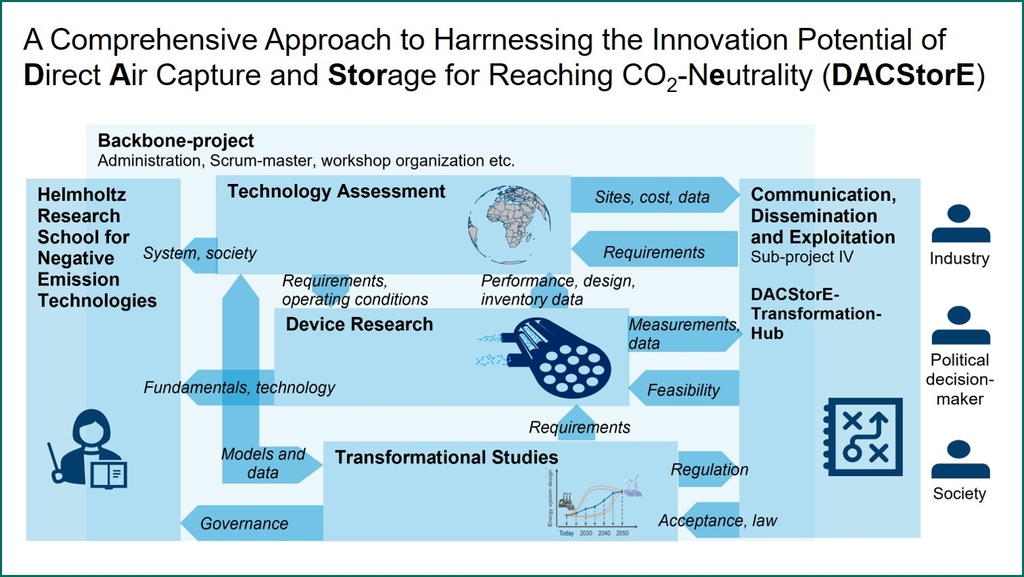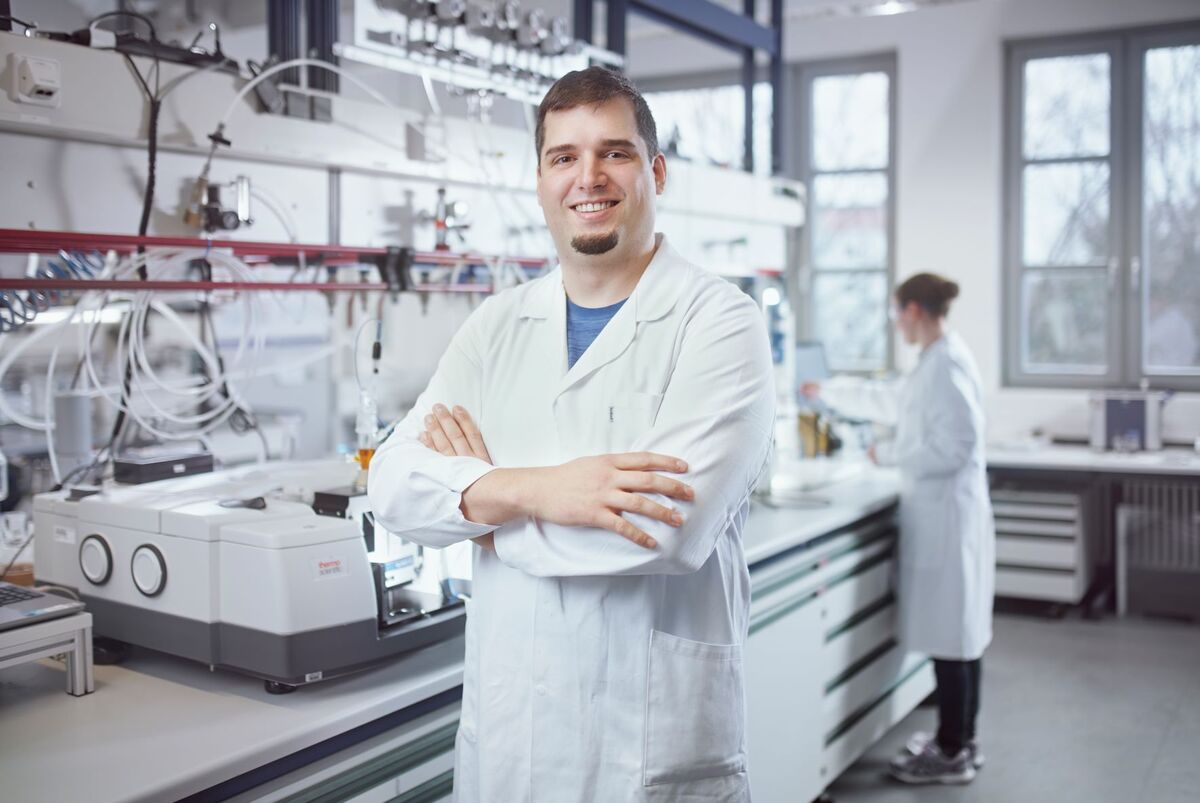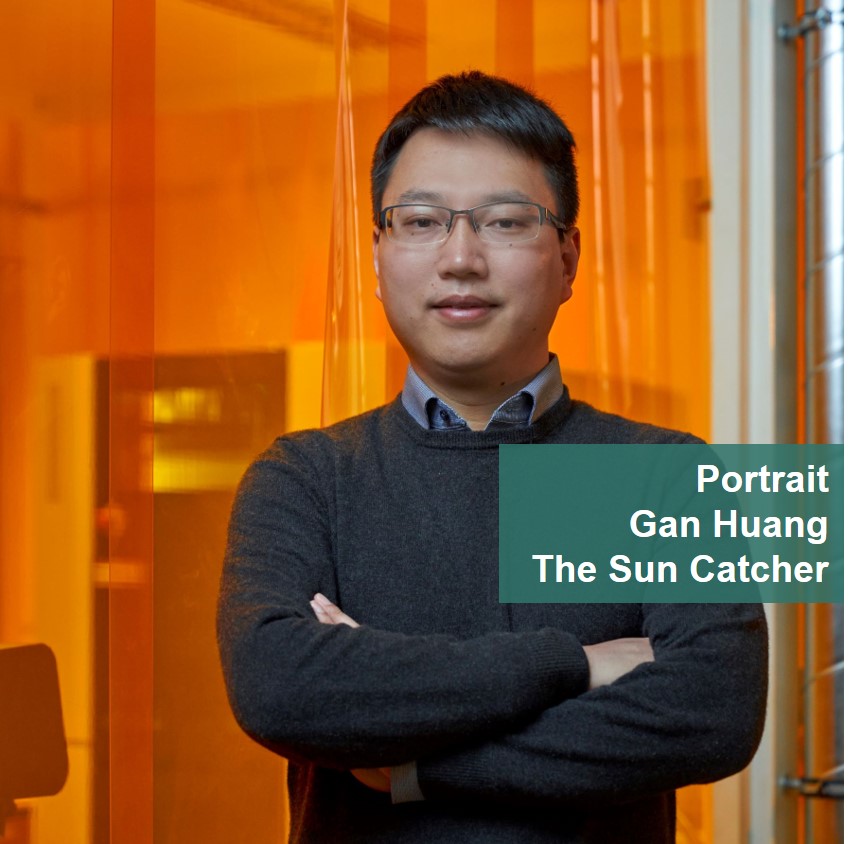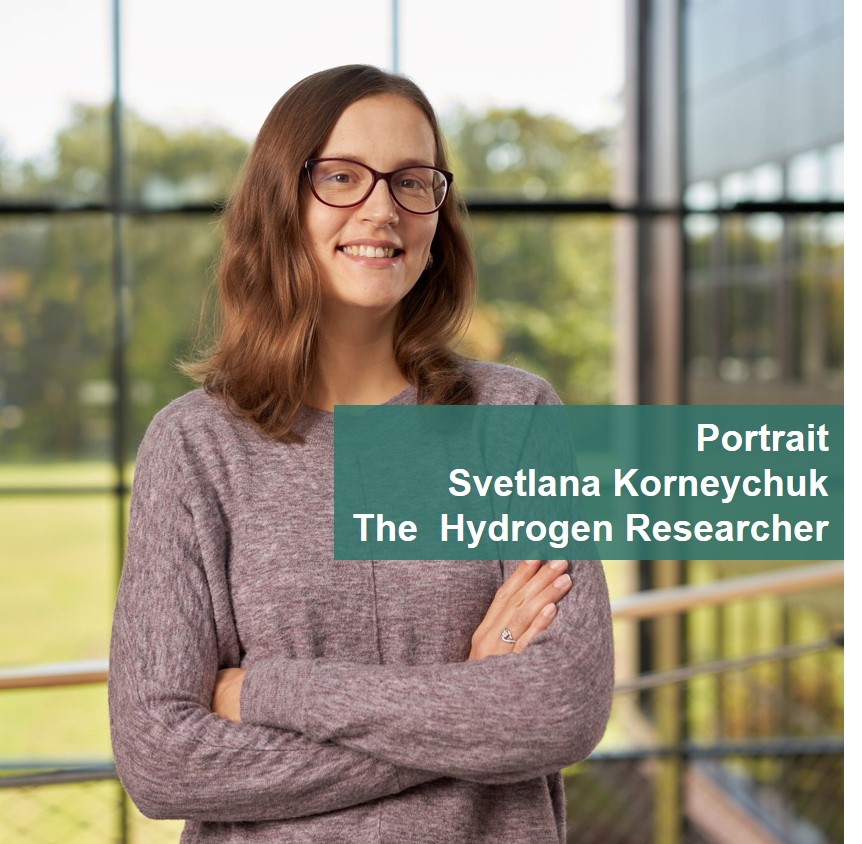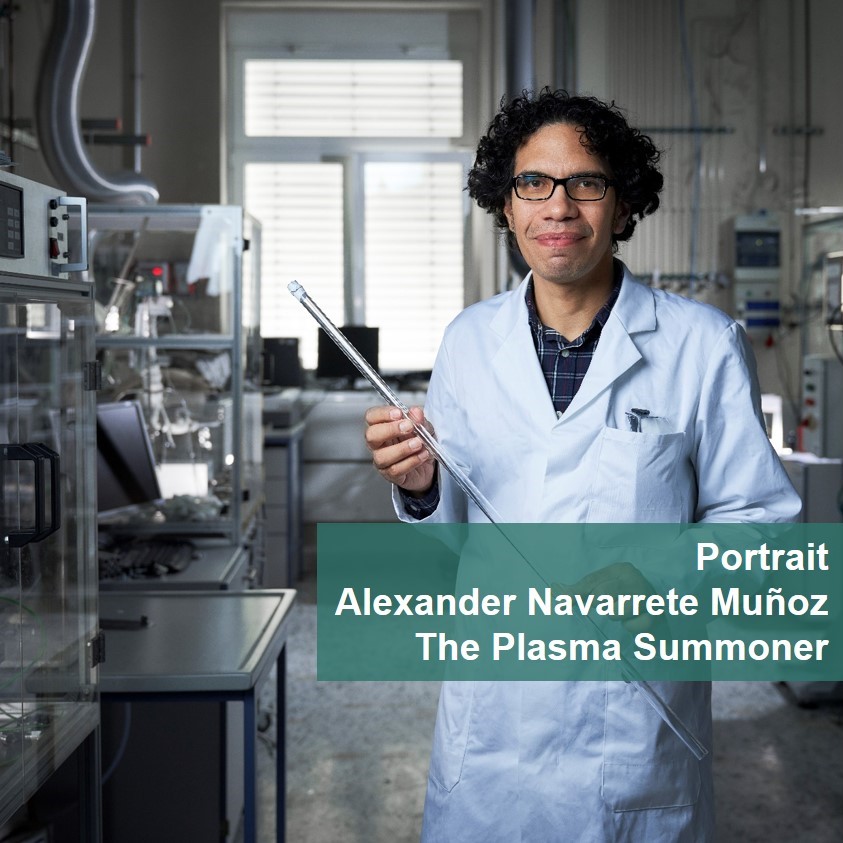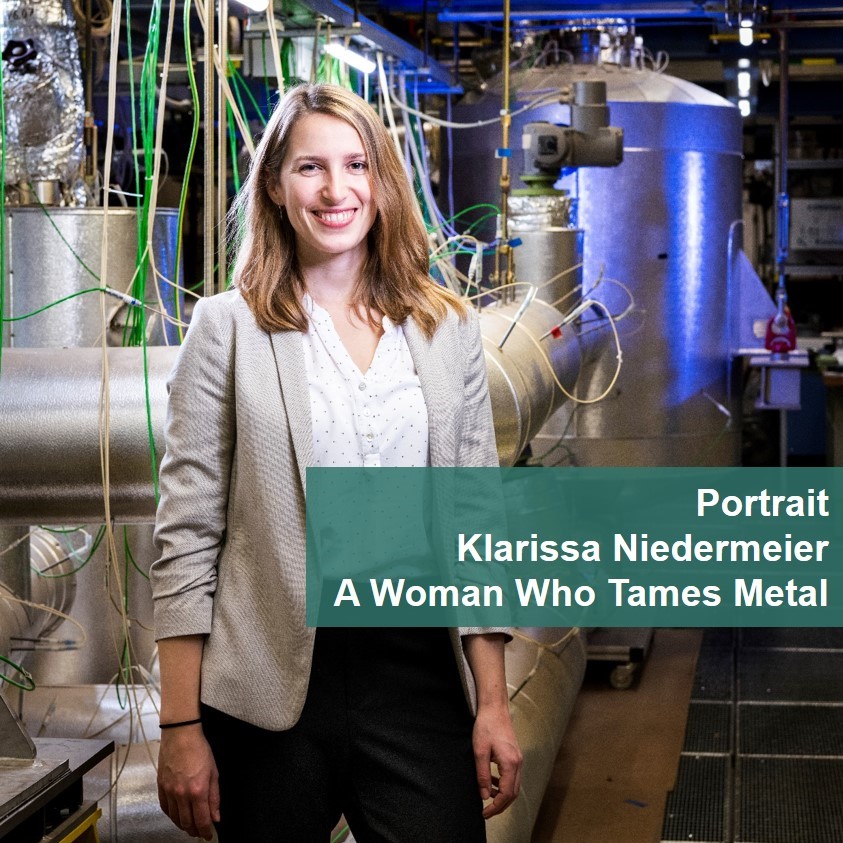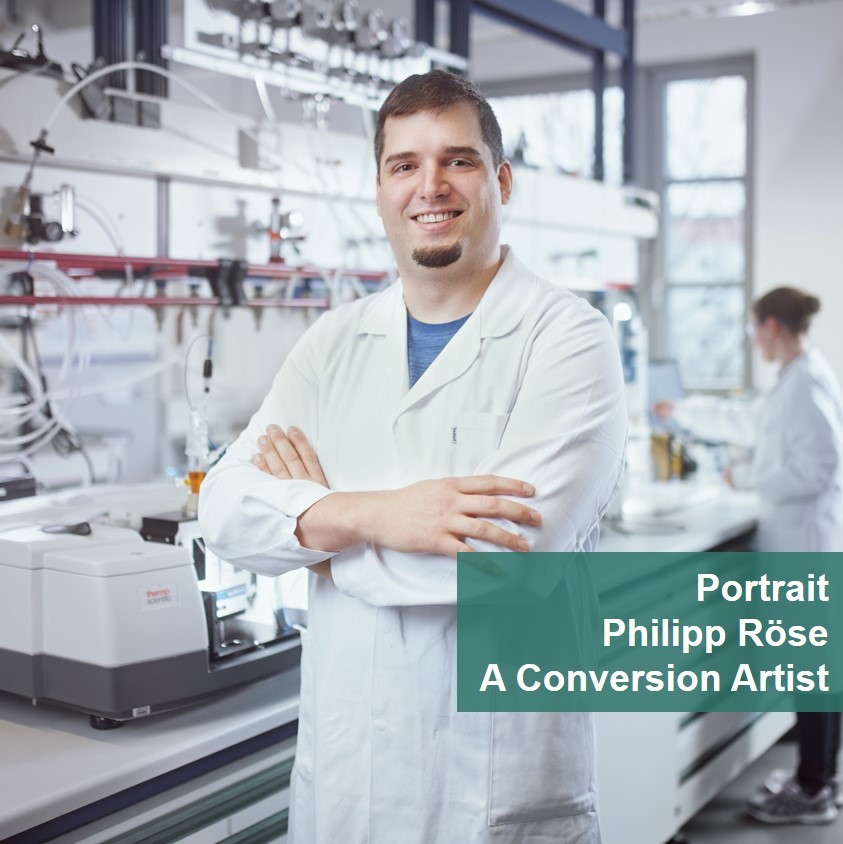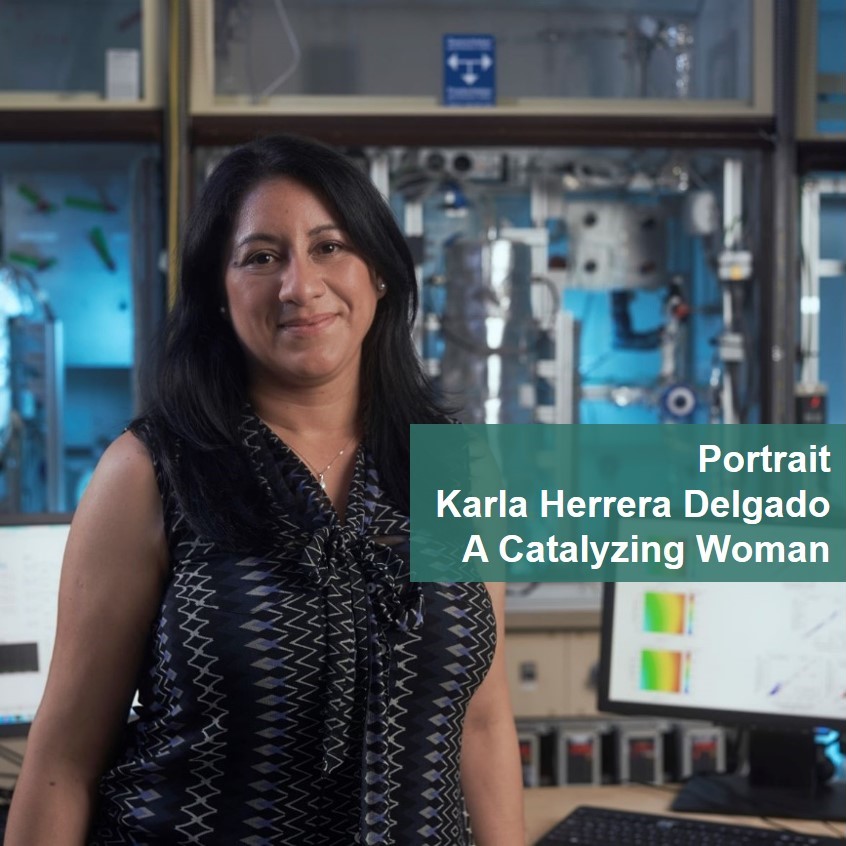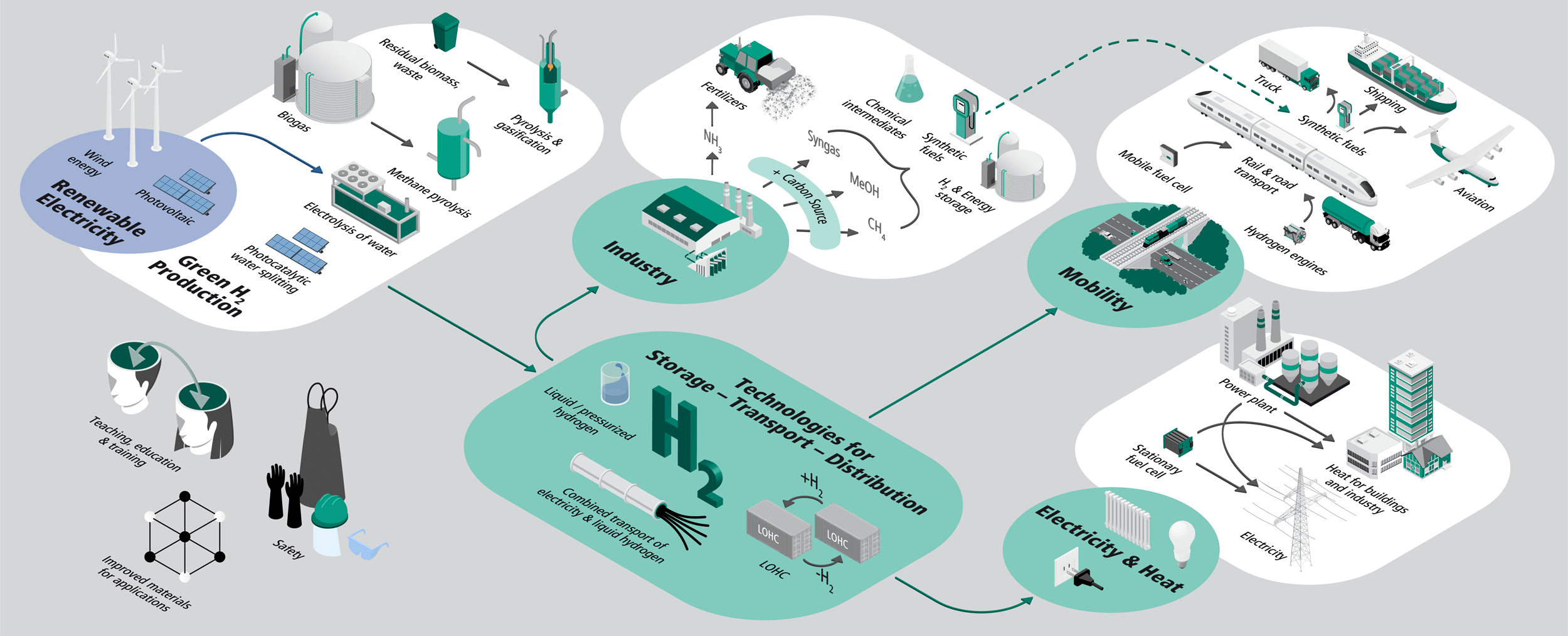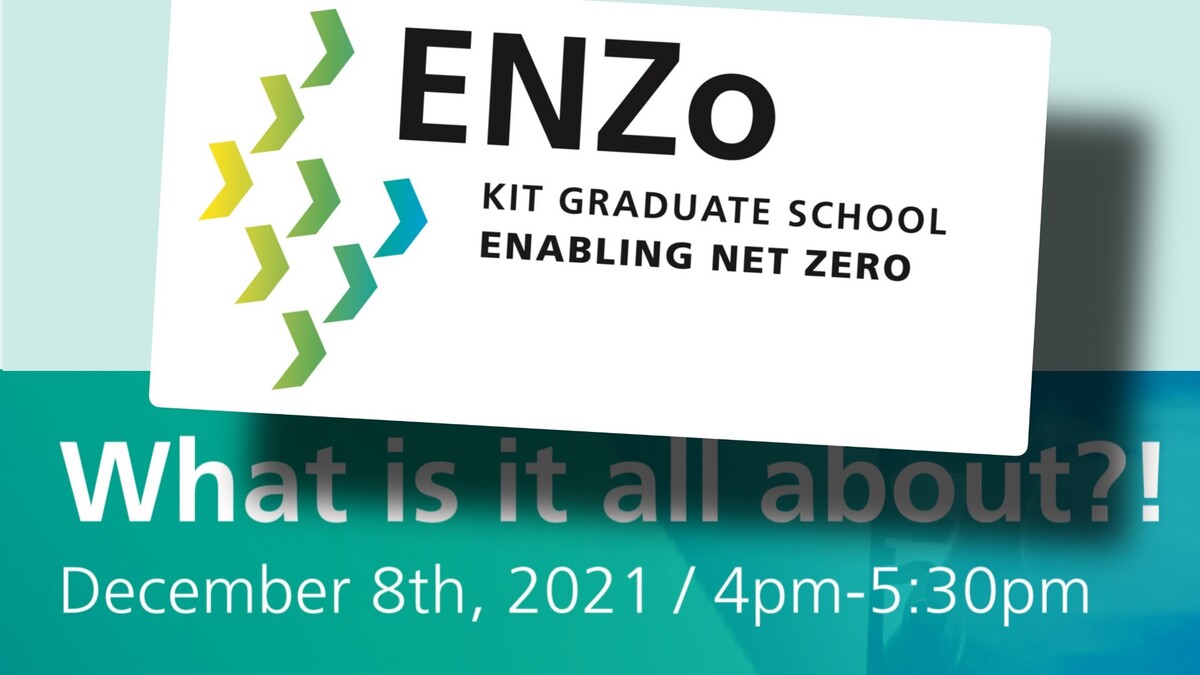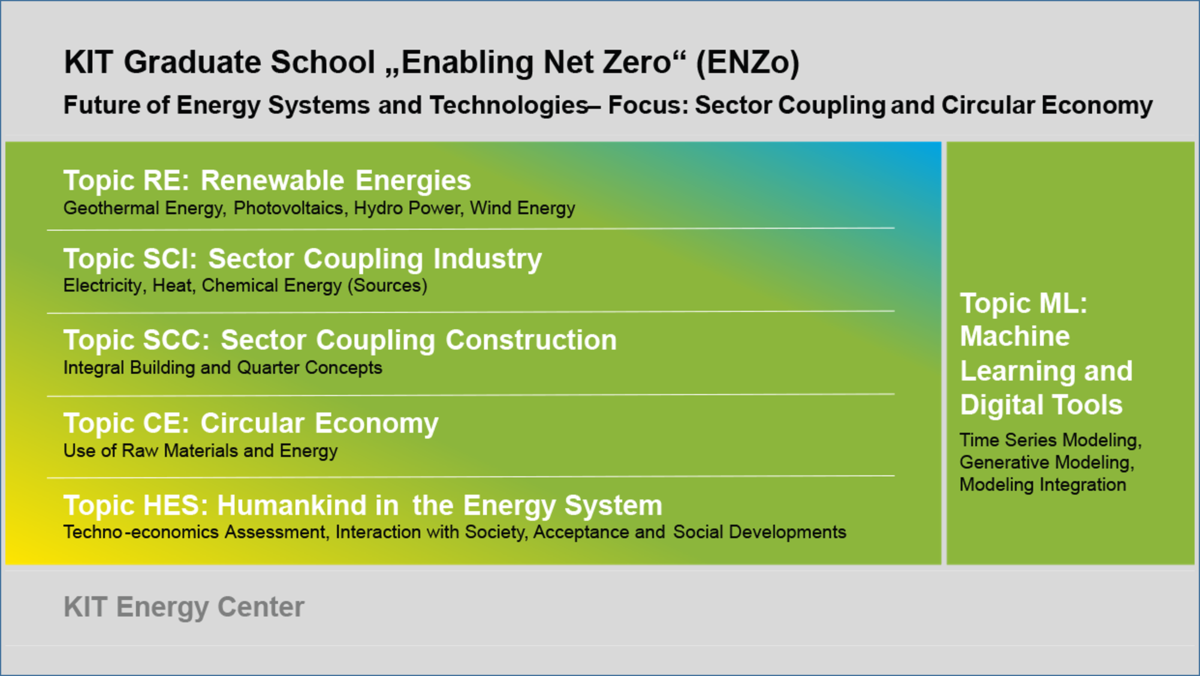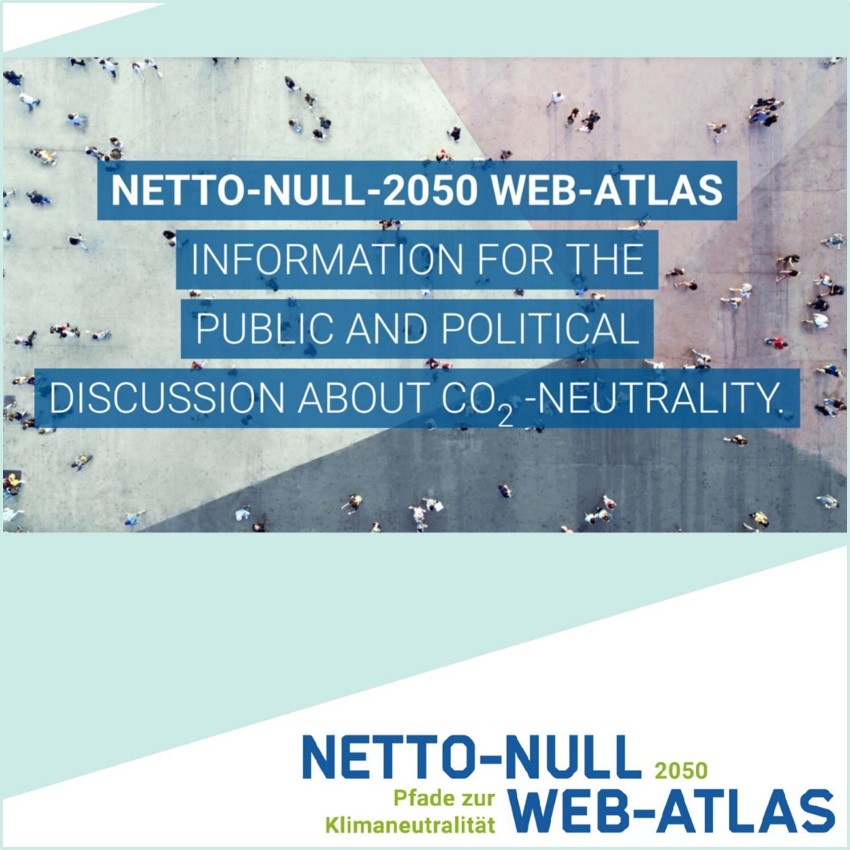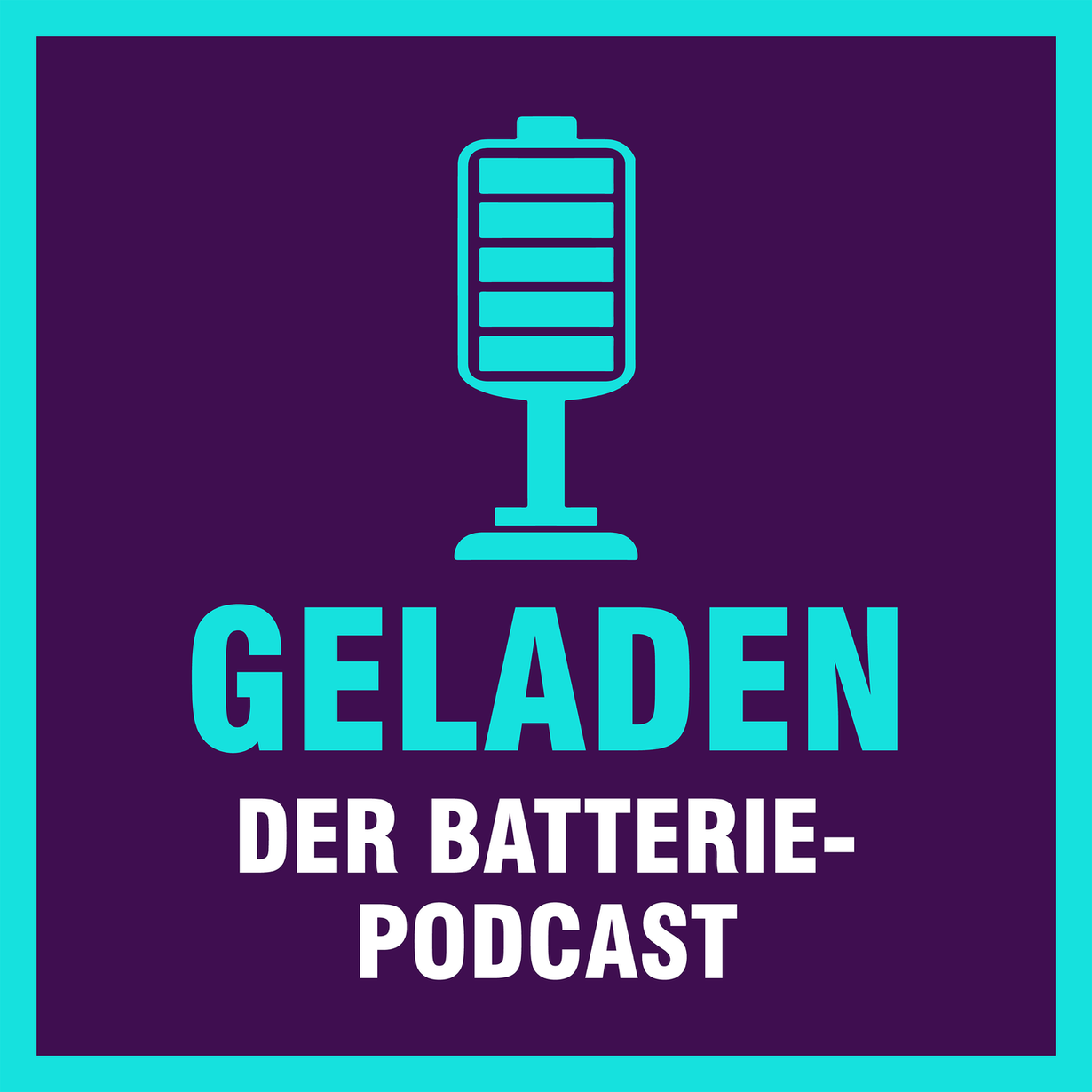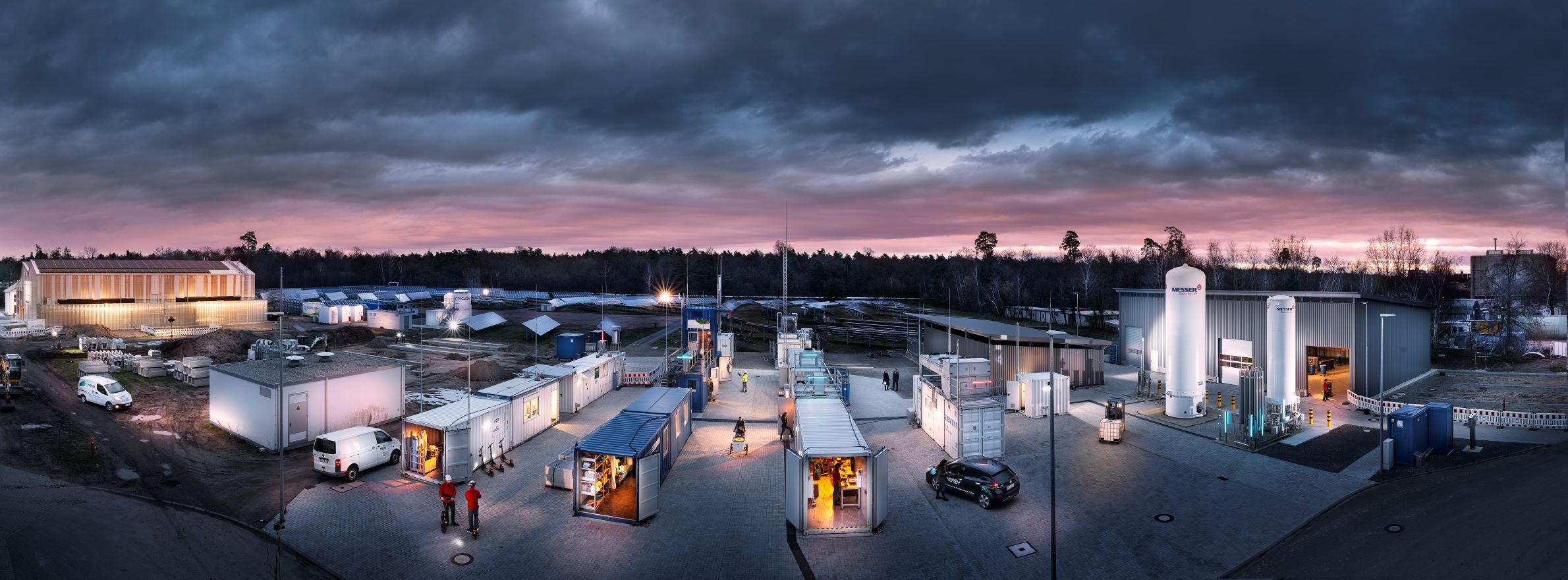We research materials and technologies for the energy transition at KIT in the Helmholtz Association.
Our goal is to provide sustainable technologies for a society in which energy supply and material cycles are linked in a defossilized circular economy. This requires efficient solutions for the conversion, transport, storage and use of energy and energy sources.
News | News Archive

was held in Berlin on February 18 and 19. Dr. F. Jeschull (MTET Battery Topic) and Dr. V. Goldberg (MTET Geothermal Energy Topic) attended the workshop.
Read more
CELEST-CERL (CELEST Circular Economy Recycling Lab) is a research infrastructure being developed at KIT to create sustainable recycling strategies for critical materials, particularly used batteries.
Read more
KIT researchers surpass NASA and achieve a technological breakthrough toward a CO₂-neutral energy system
Read more
The ETOS future cluster receives EUR 12 million in new funding to advance the electrification of chemical production.
Read more
In his new role as Vice President for Energy at the Helmholtz Association, KIT President Jan S. Hesthaven discusses, among other things, the success of the energy transition.
Read more
At a pilot plant in Mannheim, renewable and fossil fuels are blended according to demand, and CO₂ savings are measured for every delivery.
Read more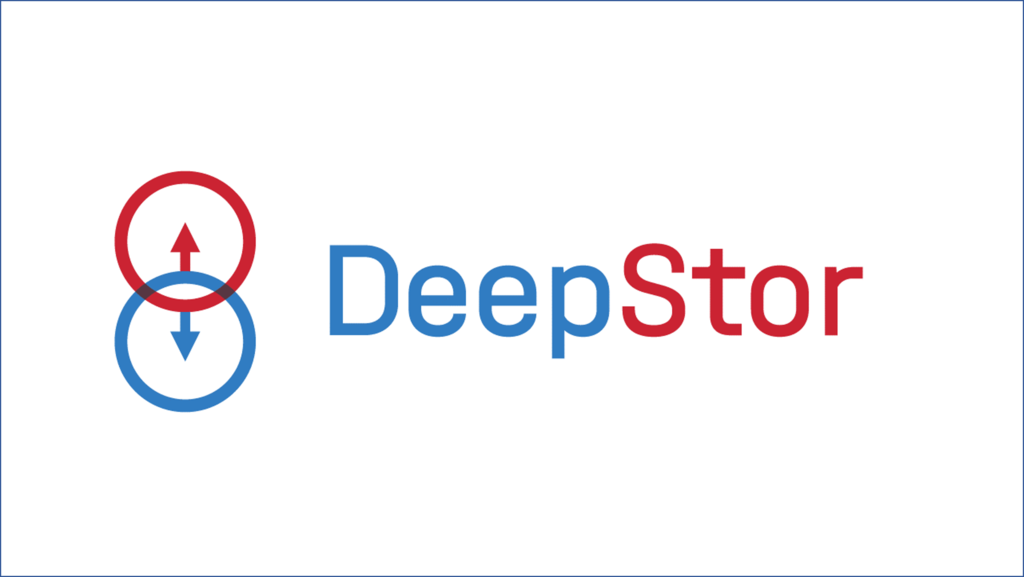
Preparations for exploratory drilling are progressing. Currently , groundwater measuring points are being set up, initial sampling for a baseline measurement is taking place, and the drilling site is being further prepared.
DeepStor website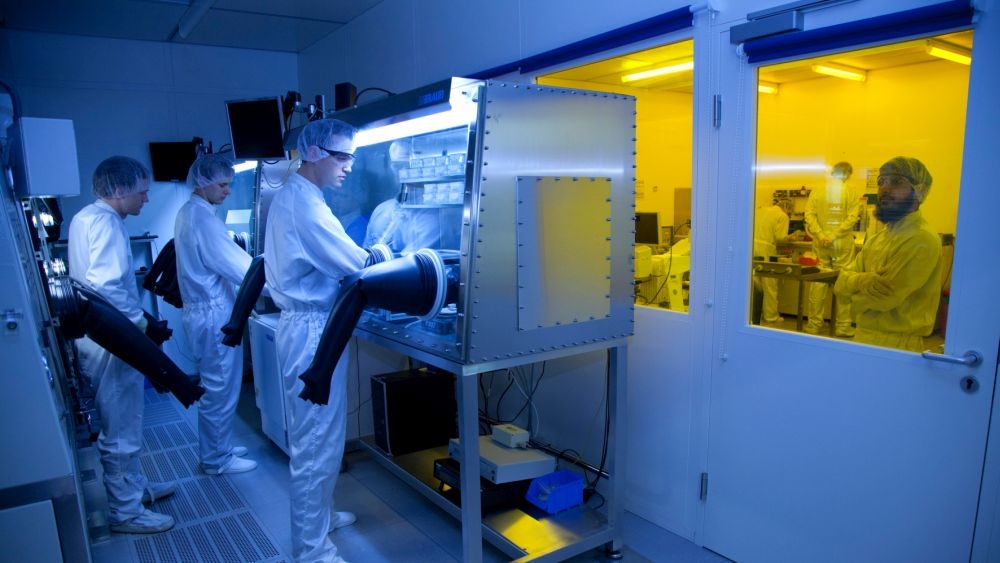
Solar TAP provides companies with access to research infrastructure and accelerates innovation in next-generation photovoltaic technologies.
Read more“First KIT – and then what?”
By loading you accept YouTube's privacy policy.
Make a successful start to your career by studying at KIT! Around 85 per cent of our alumni are extremely satisfied with their current job! One of them is Dr Sara Claramunt. As part of her doctoral thesis on the MTET topic “Chemical Energy Carriers”, she conducted research on power-based fuels and chemicals.
Dr. Claramunt won the Blanc & Fischer Innovation Award 2023. This prize is awarded for the best dissertations from the engineering faculties at KIT in recognition of outstanding research achievements in the context of high innovation potential or successful implementation in practice.
World premiere: “Mannheim 001” production plant produces marine fuel from wastewater and electricity
Mannheim, March 24, 2025 - A pioneering innovation from Mannheim is setting new standards in the production of sustainable fuel. For the first time, sustainable marine fuel is being produced from wastewater and electricity in a globally unique plant. Behind it is a consortium consisting of the climate technology start-up ICODOS GmbH, Karlsruhe Institute of Technology (KIT) and Eigenbetrieb Stadtentwässerung (EBS) Mannheim. This pioneering project utilizes the immense potential of wastewater treatment plants - there are around 9,000 of them in Germany alone, and the number is estimated at up to 75,000 at EU level.
Detailed caption: Joint opening of the “Mannheim 001” plant with (from left to right) David Strittmatter, Managing Director and co-founder of ICODOS; Dr. Volker Wissing, Federal Minister; Alexander Mauritz, Head of Municipal Wastewater Management; Dr. Fracisco Vidal Vázquez, Managing Director and co-founder of ICODOS; Prof. Dr.-Ing. Roland Dittmeyer (IMVT, KIT); KIT Vice President Prof. Dr. Thomas Hirth.
Press Release: a) ICODOS, b) Federal Ministry for Digital and Transport Affairs, c) KIT
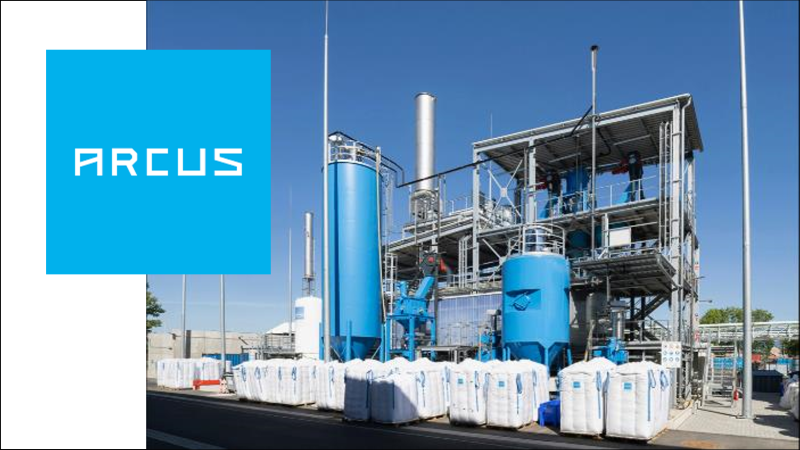
Germany‘s 1st chemical recycling plant for mixed plastic waste: Arcus Greencycling Technologies operates the scale-up of KIT’s screw reactor pyrolysis technology at Frankfurt Höchst supplying BASF with feedstock for syngas production and steam cracker
https://arcus-greencycling.com/en/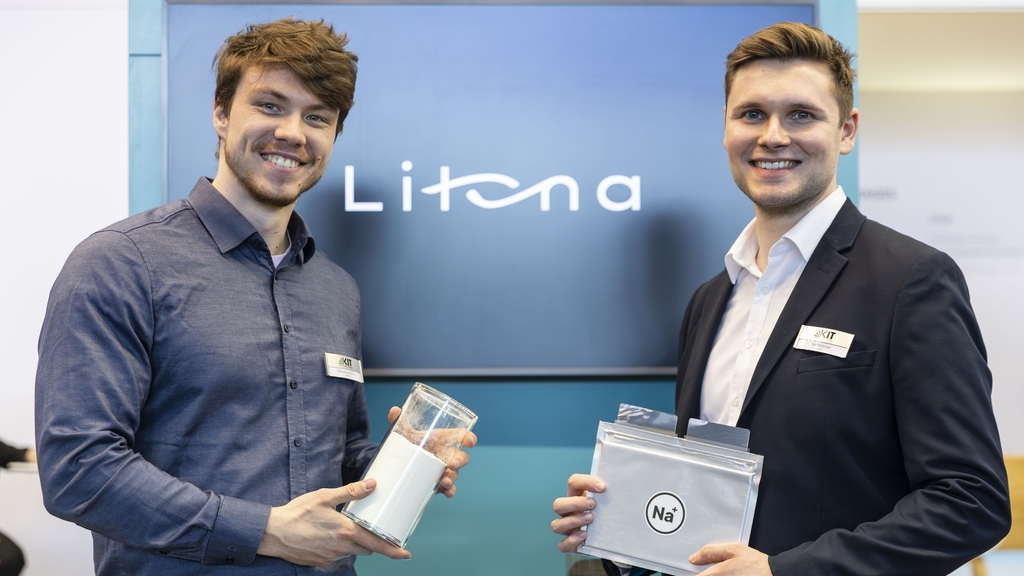
Sebastian Büchele (left, Litona founder) and Tom Bötticher show a bottle of Prussian white, an energy storage material for sodium-ion batteries. They can be produced using abundant and inexpensive materials reducing the dependence of Europe on imports of resources.
https://www.litona.de/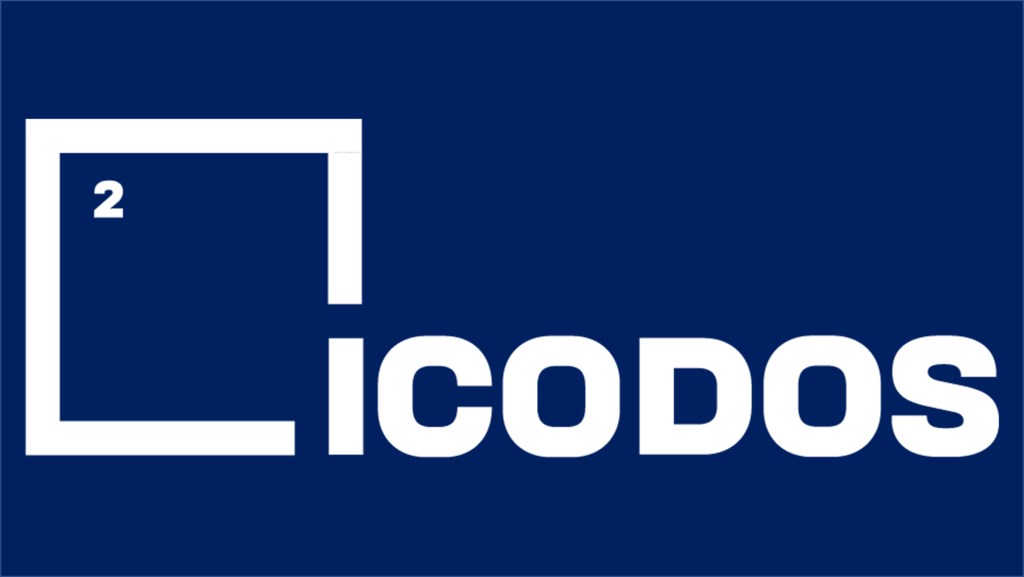
KIT`s startup ICODOS uses an innovative Power-to-X technology to produce green methanol. ICODOS, KIT, and BASF launch world’s first fully-integrated, automated and dynamically operated e-methanol plant.
https://icodos.com/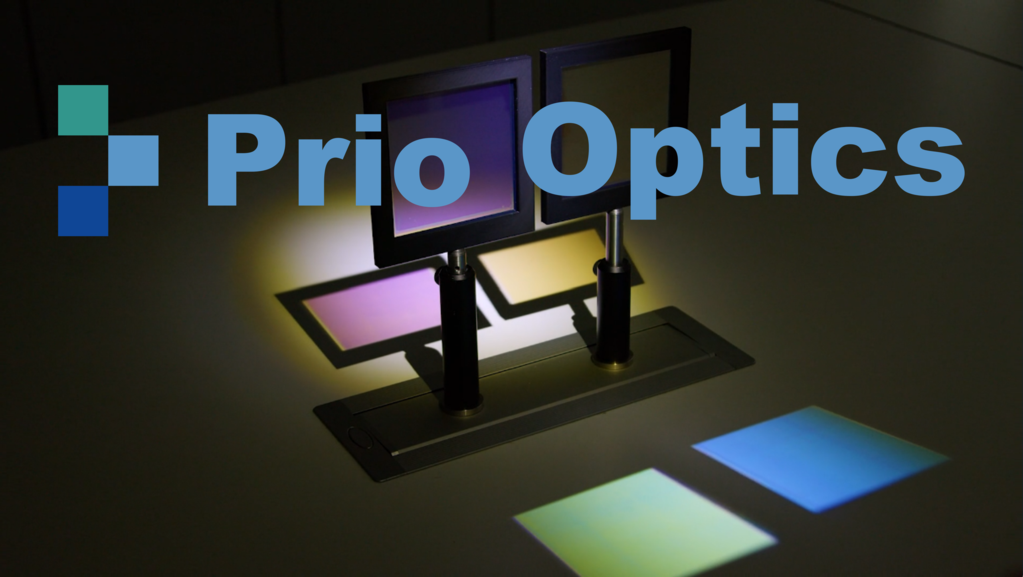
Prio Optics produces optical filters using a game-changing inkjet printing method; Breaking free from the limits of vacuum chambers, we enable customization, cost-effectiveness in small batches, sustainable production and address unanswered demands
https://www.prio-optics.com/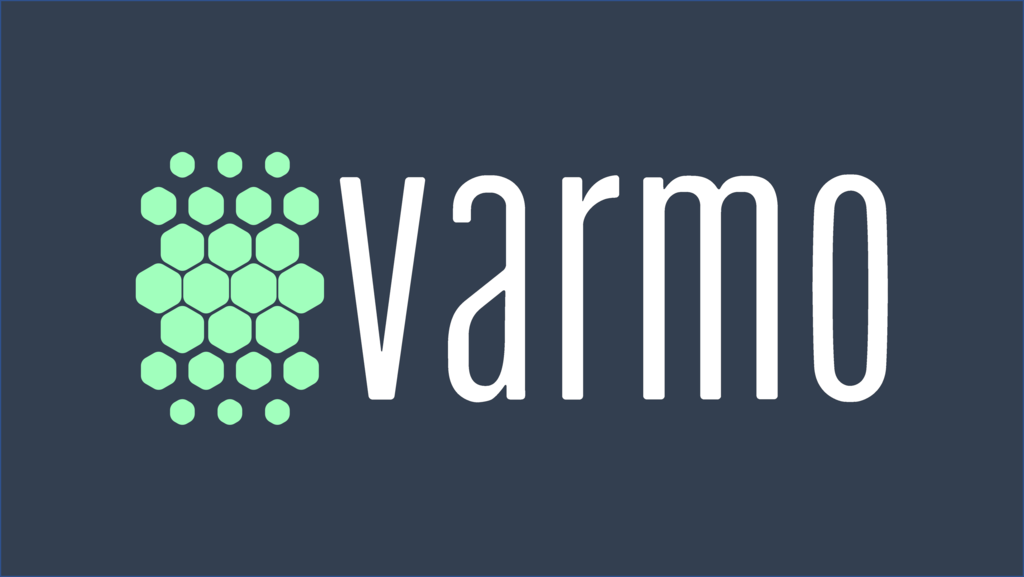
At varmo, we’re pioneering a new generation of heat flow sensor technology that enhances the way industries manage thermal processes. By integrating our innovative sensors into your products and systems, you can optimize efficiency, detect anomalies ...
https://www.varmo-sensors.de/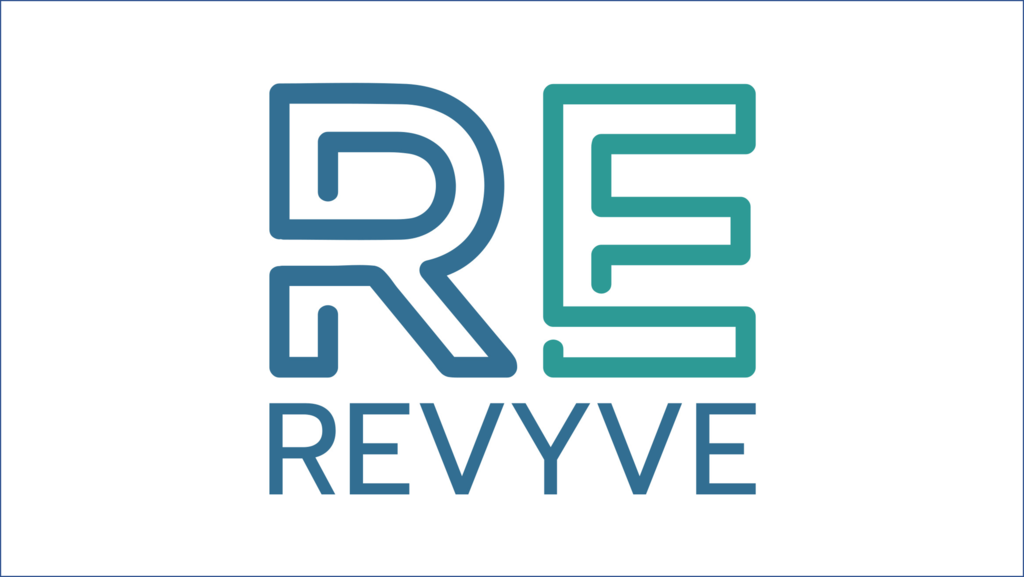
At REVYVE, we are passionate about pioneering innovation in the maritime sector. We firmly believe that hydrogen holds the potential to revolutionize the way we navigate the world's waterways. Join us on our journey to clean boating!
https://www.revyve.tech/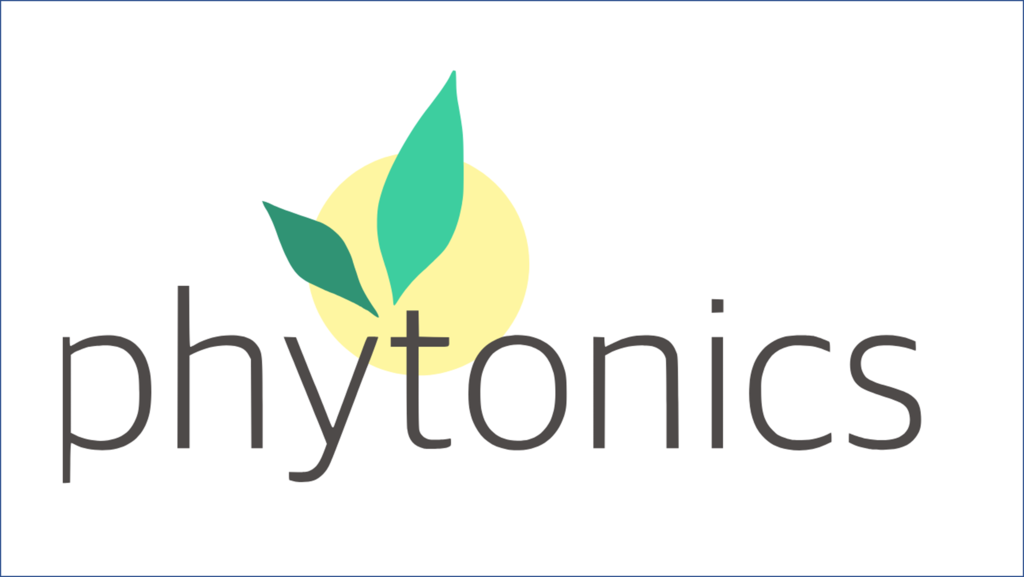
Phytonics GmbH was founded in 2021 out of the KIT. Phytonics develops optical coatings with a surface micro-texturing inspired by or replicated from plants. Its prime objective is to foster the generation of photovoltaic electric energy by offering cost...
https://phytonics.com/en/company/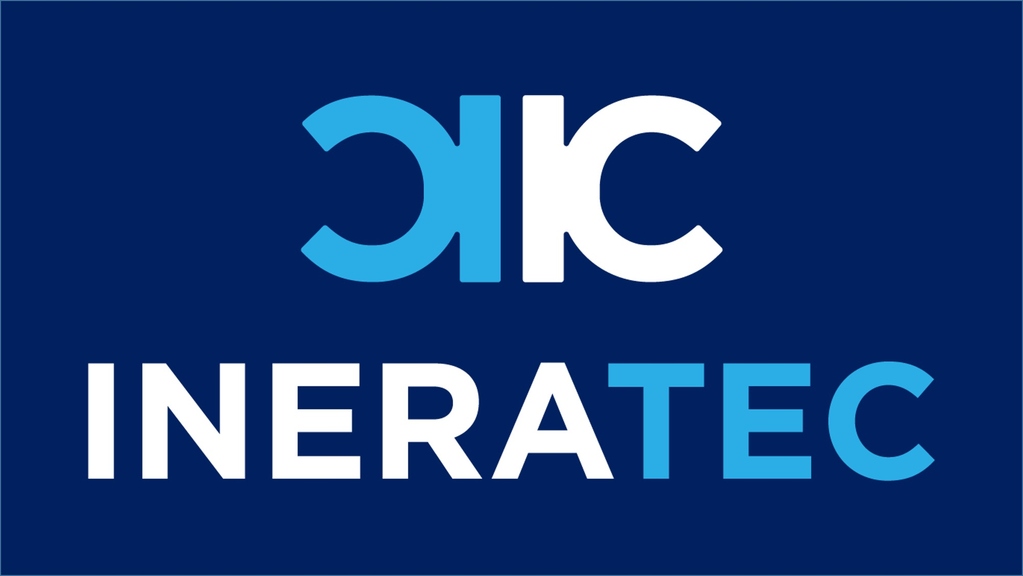
Modular chemical plants for Gas-to-Liquid, Power-to-Gas & Power-to-Liquid processes producing CO2 neutral fuels for mobility, storage of "green" energy & decentralized production of chemicals: INERATEC
INERATEC GmbH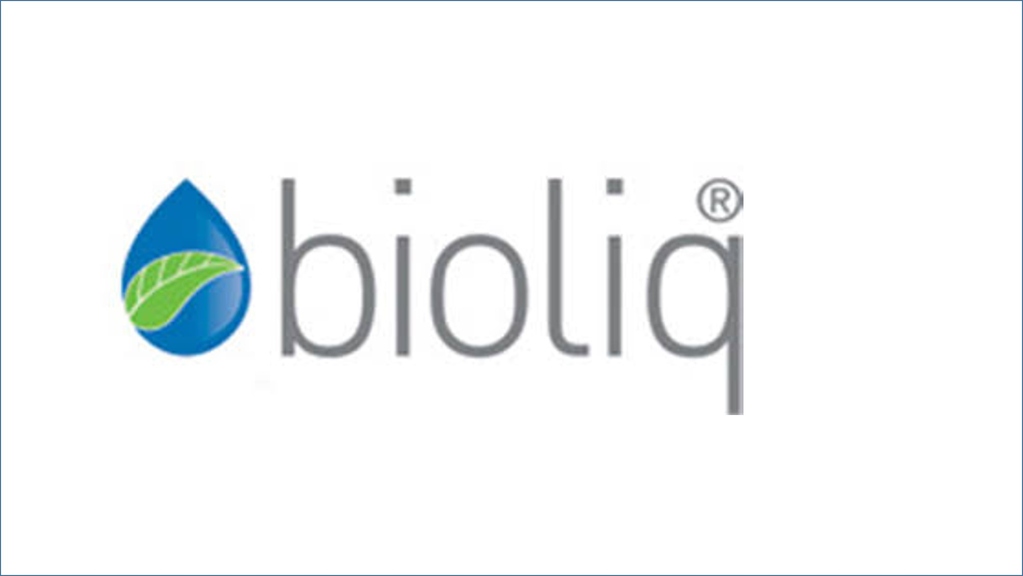
bioliq® process & exploitation concept was developed in cooperation with AirLiquid & Pricewaterhouse Coopers. R&D platform for refuels with automotive, chemical & petroleum industry.
bioliq® websiteChilean-German Summer School on Power-to-X
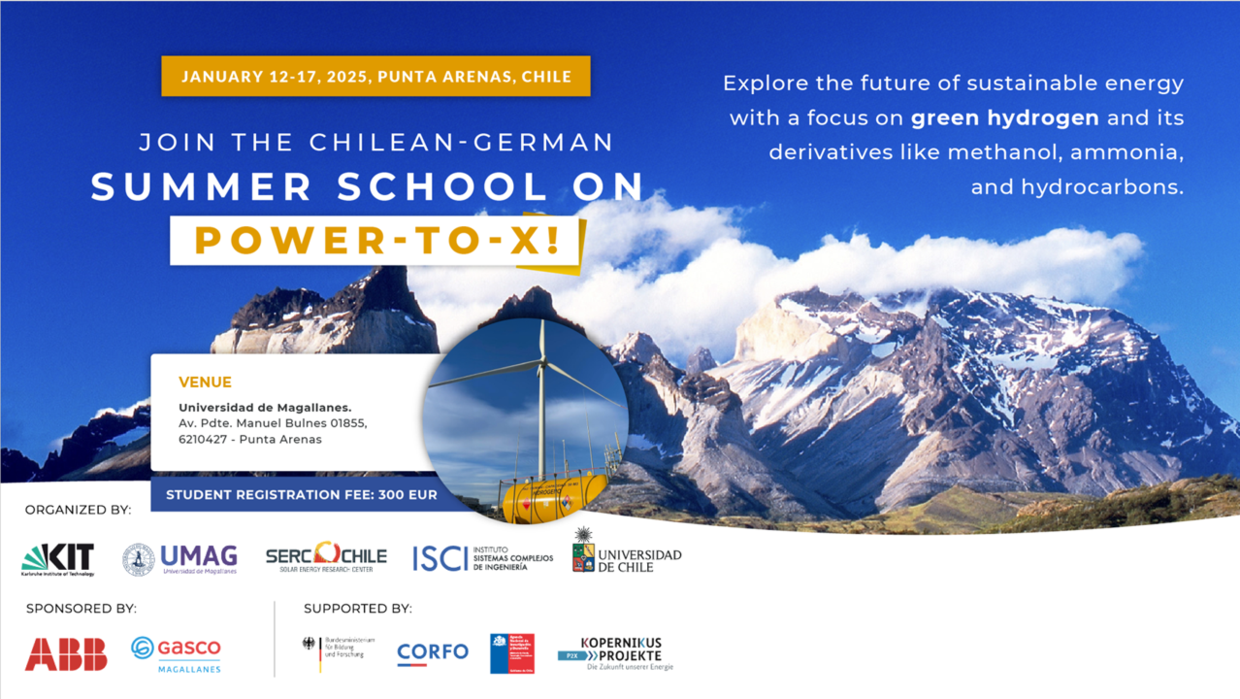
From January 12 to 17, 2025, the future of sustainable energy was explored in Punta Arenas, Chile, with a focus on green hydrogen and its derivatives such as methanol, ammonia and hydrocarbons.
These products, derived from renewable energy sources, are crucial for reducing greenhouse gas emissions in hard-to-electrify applications worldwide.
The event started with warm welcome speeches from the organizing institutions. Representatives from local authorities provided valuable insights into the regional energy transition, offering both local and national perspectives on developments in the Magallanes region and across Chile.
Participants had the opportunity to engage in keynote presentations, research discussions, and interactive workshops to address the challenges and opportunities along the value chain of international power-to-x projects in the context of the global energy transition. Collaboration between Chile and Germany can contribute significantly to unlocking the potential of renewable power and creating sustainable solutions for future generations.
The third day covered the Power-to-X value chain, focusing on grid integration, derivatives, and decentralized energy solutions. These topics were presented by representatives from Karlsruhe Institute of Technology and the University of Chile.
After the presentations, students began their work with a round of project pitches. Each participant who pitched received a glass bottle sponsored by Kopernikus.
The event featured active participation from startups such as Spark e-Fuels, Phlair, and Reborn, alongside industry contributions from Ineratec, Ventus, Y-TEC, NeoZet, Neuman-Esser, offering a dynamic mix of innovative and commercial perspectives on energy solutions.
A key moment occurred on the fourth day, when participants visited the Haru Oni (HIF) plant for an in-depth tour of the hydrogen production facilities. The day concluded with dinners sponsored by ABB and Gasco Magallanes and a nature excursion to Fort Bulnes National Park, adding a social and environmental dimension to the experience.
During the final days, participants engaged in two breakout sessions to discuss key success factors for Power-to-X (PtX) projects. These sessions included presentations and in-depth discussions. The exchange of diverse mentalities and perspectives enriched critical thinking, fostering a more comprehensive understanding of the challenges and opportunities in PtX initiatives and international collaboration.
Attendees had the unique opportunity to explore the technology and innovation landscape, network, and experience the stunning natural beauty of Patagonia.
EU project RISEnergy | Accelerating Innovations for Climate Neutrality
One of the EU’s goals is to achieve climate neutrality by 2050. On our way there, the RISEnergy (stands for: Research Infrastructure Services for Renewable Energy) project aims to accelerate the development of innovations for the use of renewable energy sources and the commercialization of the respective technologies. Above all, access of researchers and companies to research infrastructures in European and non-European countries will be facilitated. The project coordinated by Karlsruhe Institute of Technology (KIT) will start on March 1, 2024. RISEnergy will be funded by the European Commission with about EUR 14.5 million for a duration of four and a half years.
RISEnergy will create a European ecosystem covering all areas of renewable energy technologies. We want to push the development of promising technologies from the laboratory level to industrial maturity. Joint research infrastructure projects have already been launched for certain technologies, but RISEnergy is the first project of this dimension in Europe that covers all areas of renewable energy technologies: Photovoltaics, Concentrated Solar Power, Hydrogen, Biofuels, Wind Energy, OceanEnergy, as well as Integrated Grids, Energy Storage, Materials Research, Information and Communication Technologies.
Consortium of Institutions from 22 Countries
The RISEnergy consortium consists of 69 technology institutes, universities, and industry partners from 22 countries. The partners contribute with their infrastructures, know-how, or provide organizational support.
Researchers Can Apply
Within the framework of RISEnergy, 84 research infrastructures from 19 European countries, the USA, Canada, and Japan will open their facilities to external researchers and company developers, who can apply for access. An expert committee will decide. If approved, RISEnergy will cover the costs of the research facility as well as travel and accommodation expenses. Most of the project budget will be used for this purpose.
Picture a Scientist - Portrait Svetlana Korneychuk
The Hydrogen Researcher
"The energy of tomorrow is water, which has been broken down by electric current. The elements of water broken down in this way, hydrogen and oxygen, will secure the Earth’s energy supply far into the future”. For Jules Verne, this was a vision he wrote down in his 1875 novel "The Mysterious Island." Dr. Svetlana Korneychuk, however, likes to quote the French author because his vision is closer to reality today than ever before. With her work at Karlsruhe Institute of Technology (KIT), the researcher contributes to making hydrogen as an energy carrier affordable and suitable for everyday use.
High-Temperature Superconductivity - "In principle, there is no better way to transport or use electricity"
Research networks promote knowledge transfer!
By loading you accept YouTube's privacy policy.
Prof. Tabea Arndt is curator of the Research Field High-Temperature Superconductivity of the Research Network "Industry and Commerce" which is a part of the Research Networks Energy of the BMWK.
More information about the research networks energy:
- Website Research Networks Energy (in German)
- Research Network Industry and Trade and Research Field HTSL (in German)
- more information on the research topic High-Temperature Superconductivity (in German)
- more information on the research policy and research funding of the BMWK (in German)
Zeitenwende Energy Security
3+1 initiatives to rapidly improve the security of supply of energy and energy materials. The fourth initiative is RESUR a Helmholtz platform for the design of robust energy systems and raw material supply.
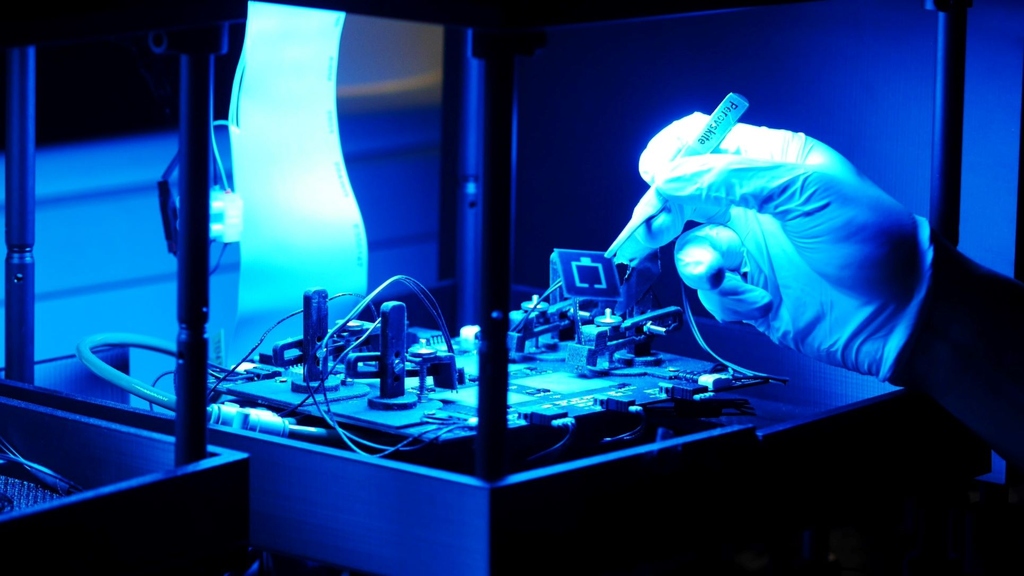
Learn more!
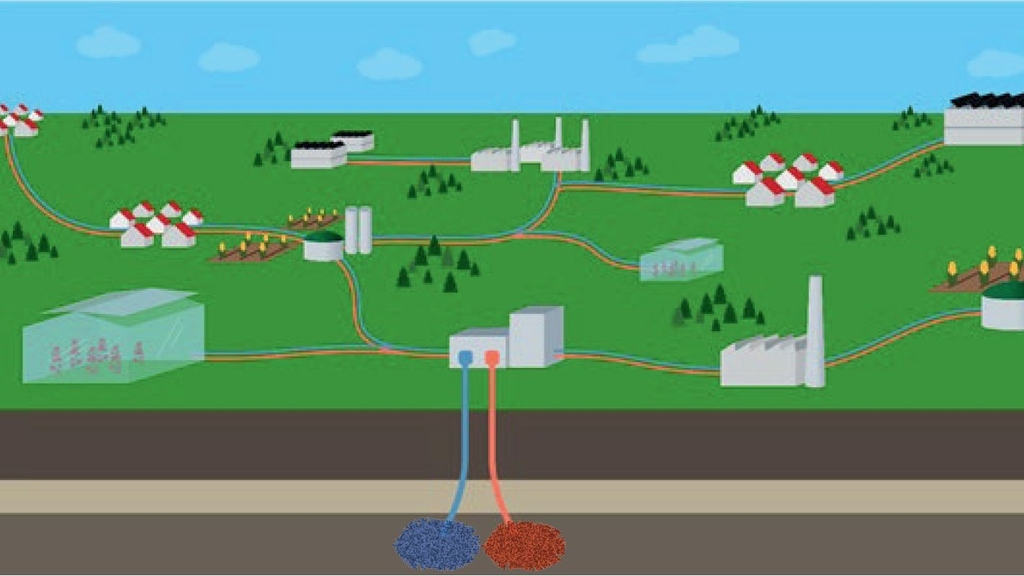
Learn more!
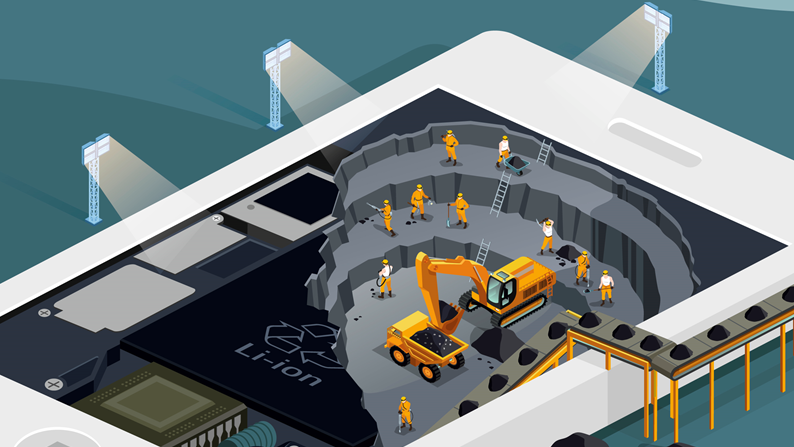
Learn more!
3D printing laboratory & Fischer Tropsch synthesis plant
Application and Research Fields Hydrogen
Hydrogen can be produced by renewable energy through electrolysis of water, methane pyrolysis of biogas or pyrolysis and gasification of residual biomass and waste. This green hydrogen can be used in the steel industry and for the production of basic chemicals and PtX products in the chemical industry. This allows a defossilization of the industrial sector, which until now has used fossil energy and fossil material sources. An application in the mobility sector is also possible where the direct use of electricity from renewable energies is impossible.
We are actively involved in the fields of production, storage, transport, distribution, application and cross-cutting issues. >>> More information
New KIT Graduate School ENZo
The new graduate school ENZo offers the next generation of young researchers the opportunity to apply interdisciplinary knowledge in application-oriented projects that can visibly contribute to the transformation of the energy system.
Future researchers are characterized not only by their desire to understand how developments and technologies can be embedded in the overall context of the energy system, but also by their desire to contribute to its sustainable design. MTET themes such as
- Renewable Energy,
- Sector Coupling Industry - Electricity, Heat, Chemical Energy (Sources), and
- Circular Economy - Use of Raw Materials and Energy
are holisticly combined in the "Real World Projects" with the important viewpoints and aspects such as
- Machine Learning and Digital Tools
- Technoeconomics Assessment, Interaction with Society, Acceptance and Social Developments.
Embedded in the manifold technological and scientific possibilities at the KIT Energy Center, ENZo creates a unique development environment for PhD students.
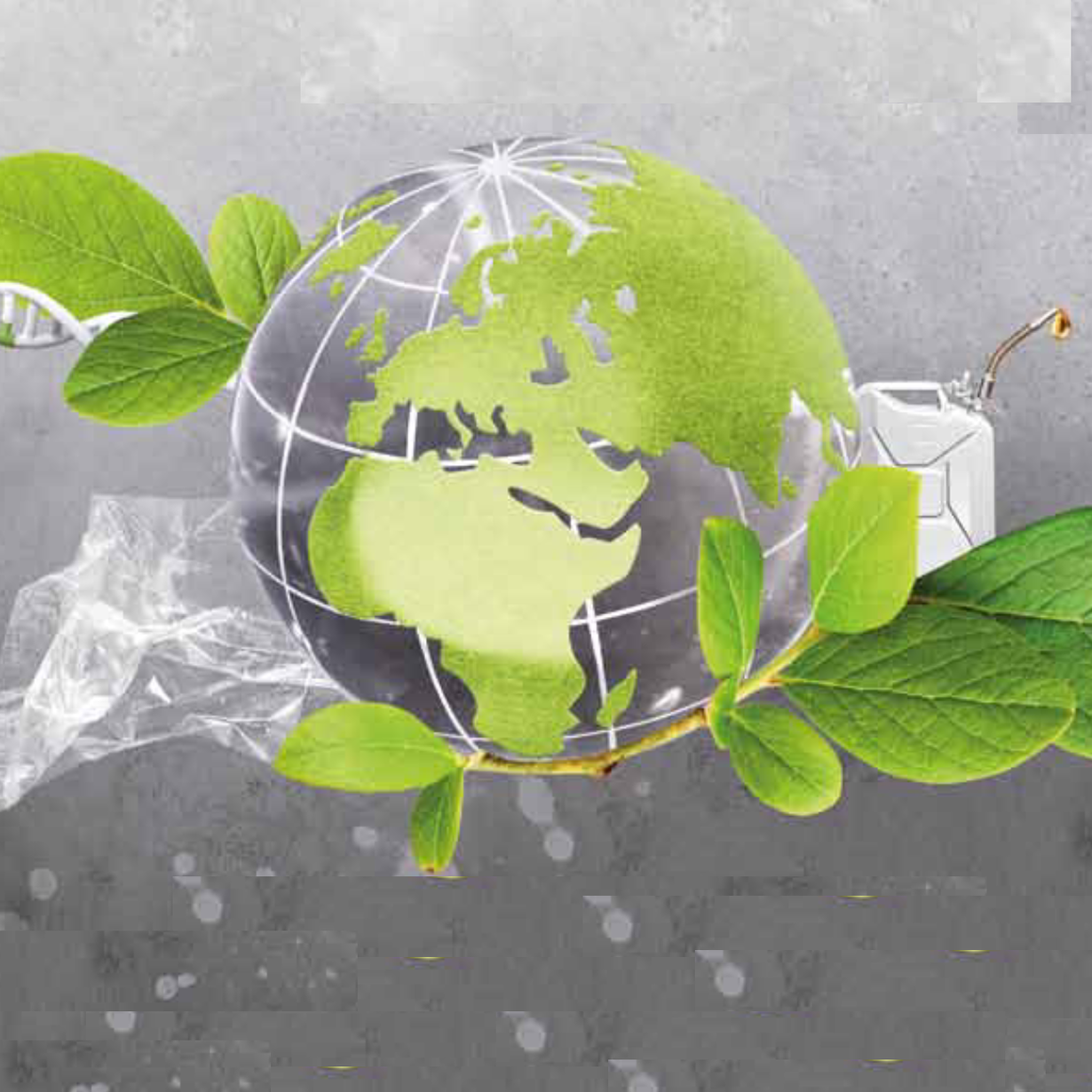
Subject of the Science Year 2020/21 plays an important role in the MTET Topics Chemical Energy Carriers and Ressource & Energy Efficiency.
more